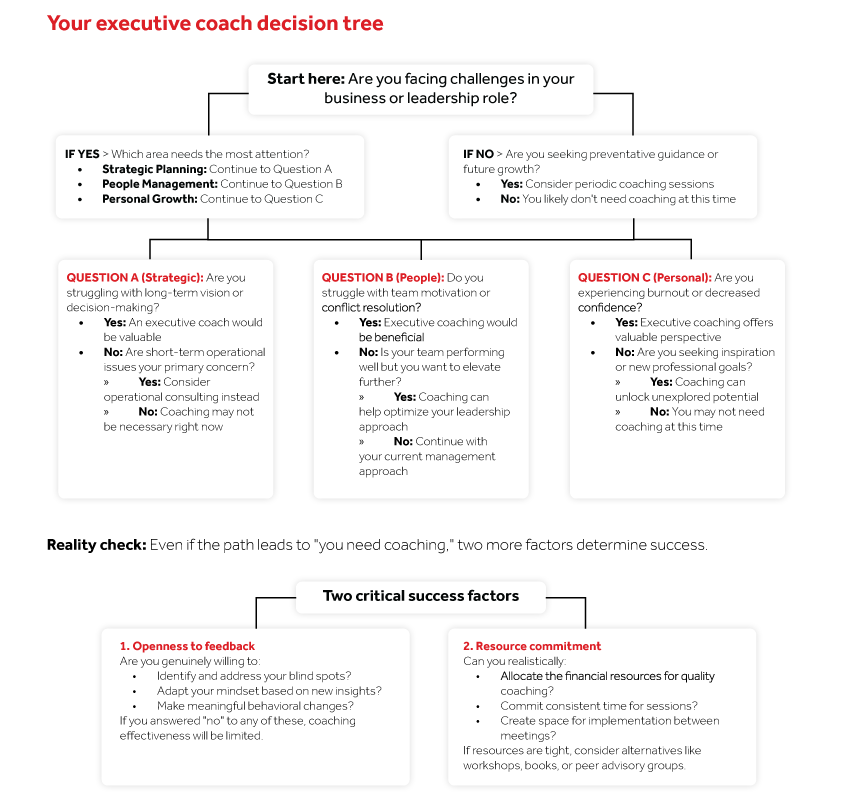Do you need an executive coach?

A decision framework for busy business owners
As a business owner, deciding whether to hire an executive coach is a significant investment that can transform your leadership capabilities, but it's not right for everyone. Use this practical guide to determine if coaching aligns with your current needs and circumstances.
Understanding your challenges
Before considering an executive coach, identify which specific areas you need help with:
Strategic planning
Creating a compelling long-term vision
Making high-stakes decisions with confidence
Aligning daily operations with business goals
People management
Motivating your team effectively
Resolving persistent conflicts
Enhancing overall team performance
Personal growth
Feeling stagnant in your leadership role
Experiencing burnout or decreased motivation
Lacking confidence in key leadership moments
Executive coaching works best when addressing specific challenges rather than general dissatisfaction. The more clearly you can identify your needs, the more effective coaching will be.
Two critical success factors
Reality check: Even if the path leads to "you need coaching," two more factors determine success:
Openness to feedback
Are you genuinely willing to:
Identify and address your blind spots?
Adapt your mindset based on new insights?
Make meaningful behavioral changes?
If you answered "no" to any of these, coaching may not be right for you.
Resource commitment
Can you realistically:
Allocate the financial resources for quality coaching?
Commit consistent time for sessions?
Create space for implementation between meetings?
If resources are tight, consider alternatives like workshops, books, or peer advisory groups.
Coaching alternatives
If executive coaching isn't the right fit, consider these growth options:
Peer advisory groups
Best for: Networking and shared experiences
Typical investment: Moderate to high
Leadership workshops
Best for: Specific skill development
Typical investment: Low to moderate
Industry mentorship
Best for: Career guidance and perspective
Typical investment: Low
Self-guided learning
Best for: Flexible, self-paced development
Typical investment: Minimal
Final thoughts...
The right development path aligns with your needs and your readiness. Whether you choose executive coaching or an alternative approach, your commitment to growth is what ultimately drives success.
Back to issue






